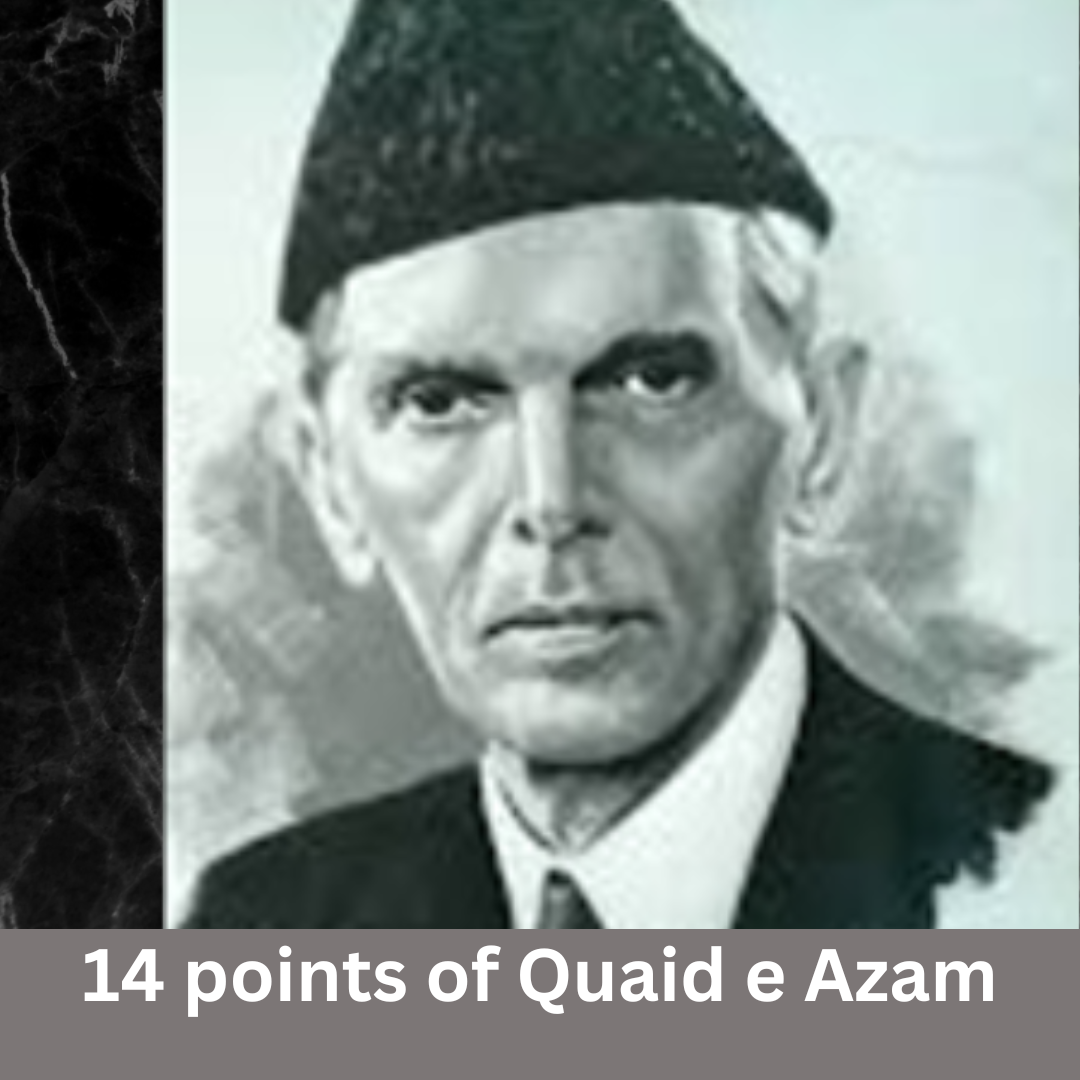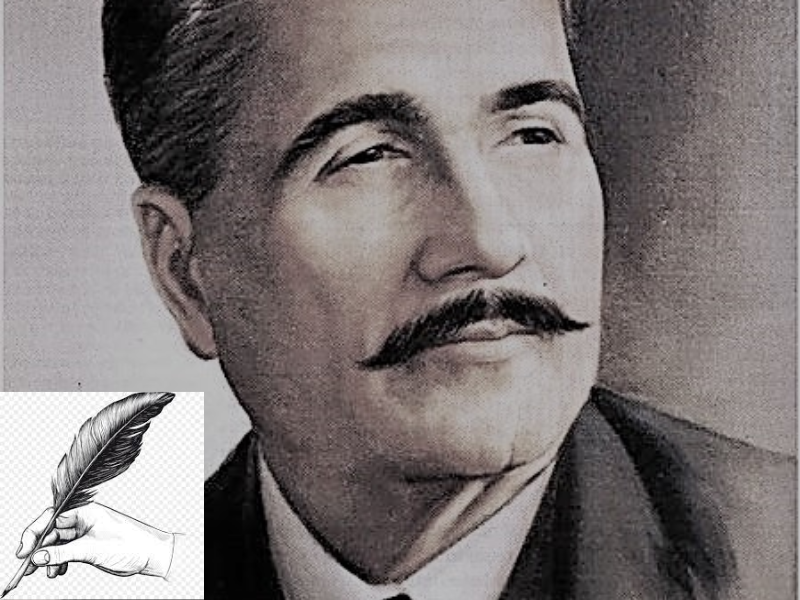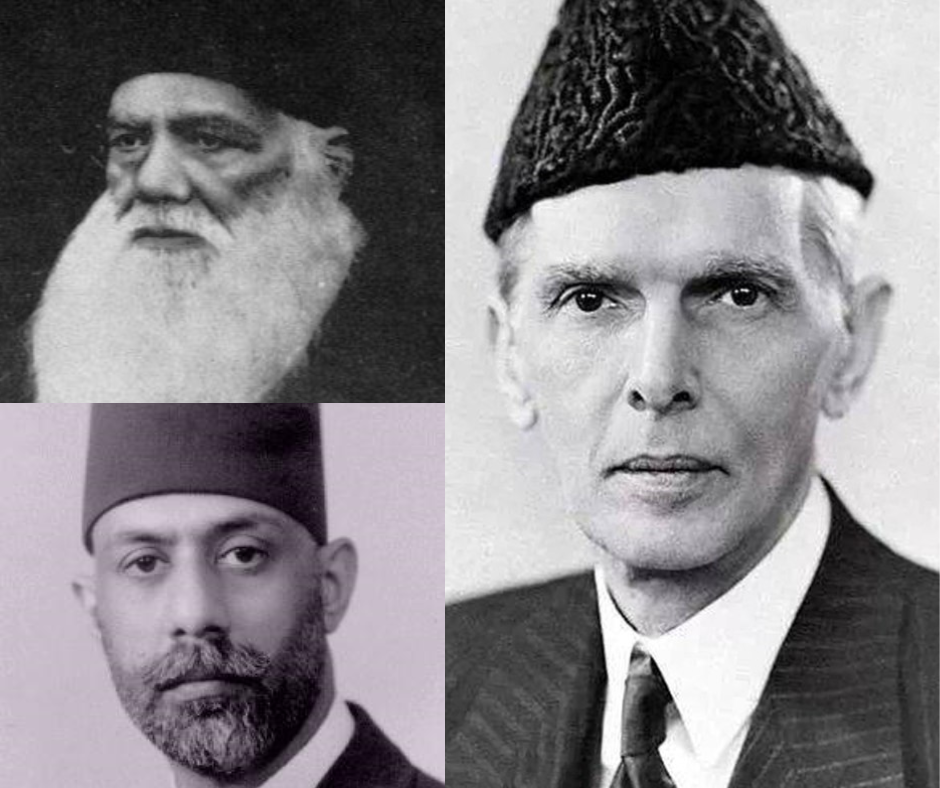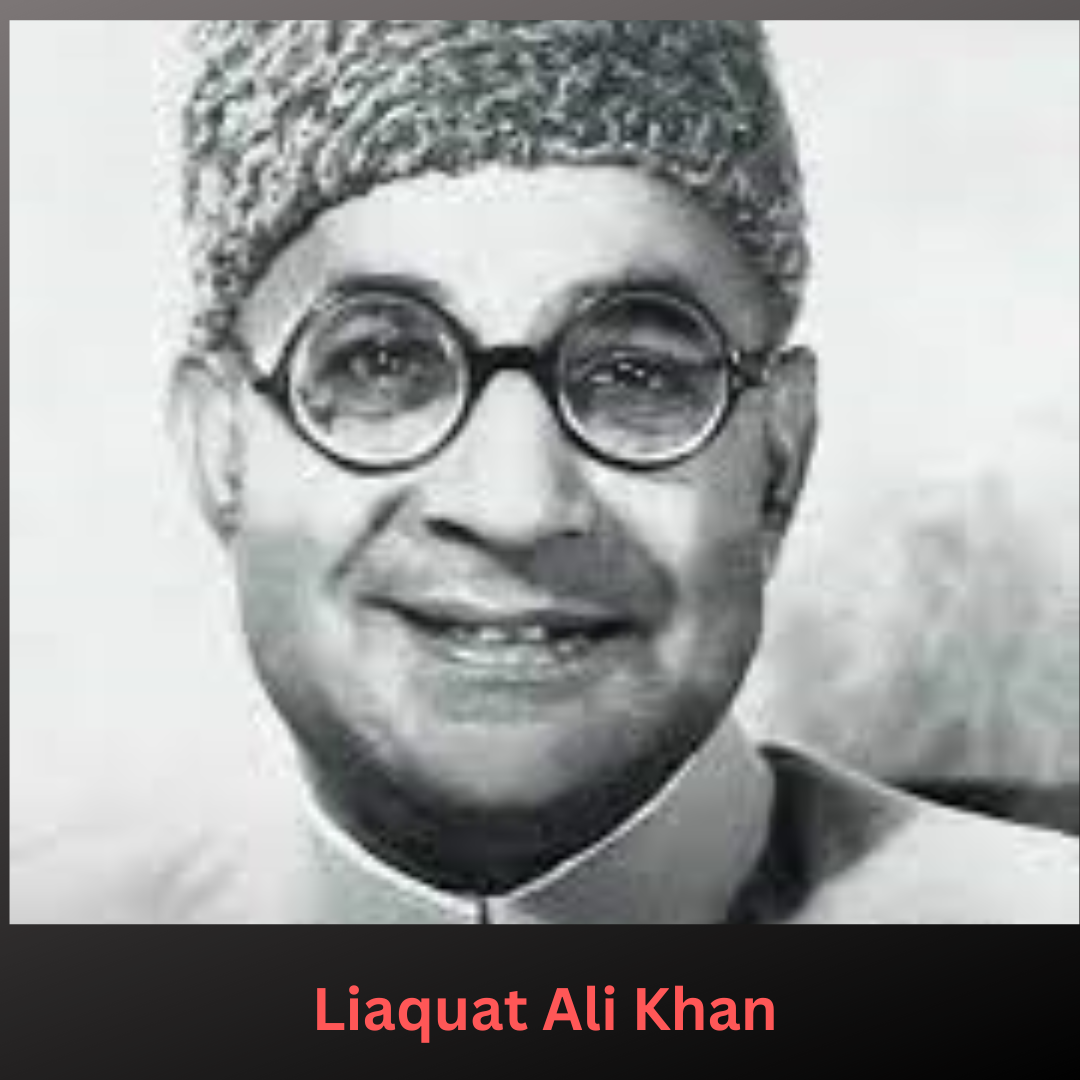Quaid e Azam Muhammad Ali Jinnah presented his 14 Points proposal commonly known as “14 points of Quaid e Azam”. This proposal was a countermeasure to the proposals made in the Nehru Report. The fourteen points further described that without protecting the Muslims’ interests, no scheme for the future constitution of the government of India would be satisfactory to Muslims. Quaid raised the following 14 points to defend Muslims’ rights in the subcontinent:
- There should be a federal constitution where the provinces should retain residuary powers.
- All provinces should receive a uniform level of autonomy.
- Every legislative body and all other elected bodies in the country must have definite principles of adequate and effective representation of minorities in every province without reducing the majority to a minority.
- Muslim representation in the central legislative body shall not be less than one-third.
- The representation of communal groups shall continue to be through separate electorates as at present, provided that any community may, at any time, abandon its separate electorate in favor of a joint one.
- In Punjab, Bengal, and NWFP, any territorial re-distribution that might be necessary shall in no way affect the Muslim majority.
- All communication should have religious liberty, freedom of belief, worship, observance, association, and education.
- The bill or resolution should not pass if three-fourths of the members of any community in that body oppose the bill or resolution.
- Sindh should be a separate entity from the Bombay Presidency.
- Baluchistan and the North-West Frontier Province should have the same reforms as other provinces.
- Along with other Indians, Muslims should have an adequate share of the State’s services.
- There should be adequate safeguards for the protection of Muslim culture, language, religion, and civilization in the constitution.
- Neither a central nor a provincial cabinet can be formed without a proportion of Muslim ministers of at least one-third.
- States constituting the Indian Federation must consent to any changes to their constitutions.
These 14 points of Quaid e Azam made it evident to both the Hindus and British Government that Muslims demanded their own identity, untainted by Hindu influence. Also, the Fourteen Points not only revitalized the Muslim League but also propelled them on a path toward freedom. These points prepared Muslims of India for an arduous struggle ahead.





